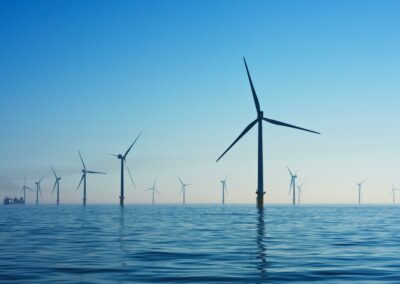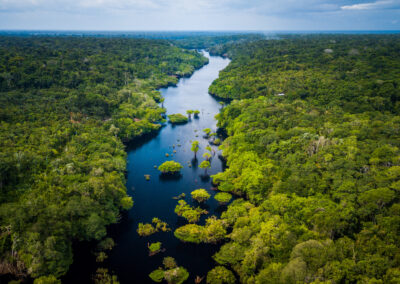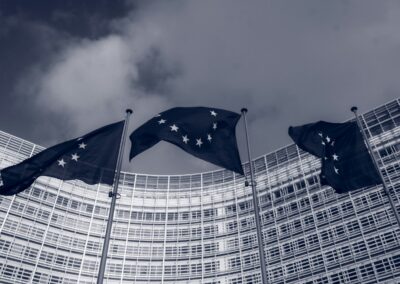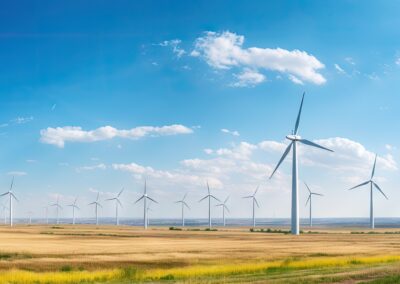Mon, 26 September 2022, 16:00 – 17:00 BST.
Join experts as they discuss net zero pathways for Brazil, a key player in the fight against climate change.
Click here to register on Eventbrite. This event is hybrid – choose to attend in-person (at the Oxford Martin School, Oxford, UK) or online via YouTube.
This event is the first in a series organised by Oxford Net Zero’s Fellows. Keep an eye out for the full series, announced soon on the Oxford Net Zero website and social media channels.
About this event
Brazil is the world’s fifth largest country by area, tenth biggest economy and contains 60% of the Amazon rainforest. The South American country is a key player in the fight against climate change.
In this webinar, we will discuss net zero pathways for Brazil based on the research led by our Oxford Net Zero Research Fellow Aline Soterroni. By combining regional models and real policy scenarios for Brazil, Aline and her collaborators estimated emissions for all sectors of the Brazilian economy up to 2050. The findings highlight the mitigation potentials of different sectors and activities and identify the urgent actions needed for Brazil to achieve its net zero pledge. The current lack of ambition and the extent of the mismatch between short- and long-term targets of Brazil’s latest NDC will also be discussed.
On the panel will be:
- Aline Soterroni, Fellow in Nature-based Solutions, Oxford Net Zero
- Izabella Teixeira, Former Minister for the Environment, Brazil
- Roberto Schaeffer, Full Professor of Energy Economics, COPPE/UFRJ
- Tasso Azevedo, General Coordinator, MapBiomas and SEEG
- Steve Smith (Chair), Executive Director, Oxford Net Zero
Artwork: Based on #netzeroposter by Christiana Figueres, Dr Cecile Girardin and Lisa Curtis, available here: http://www.cecilegirardin.com/netzeroposter.html
Click here to register on Eventbrite.
—–
Speaker biographies
Aline Soterroni
Aline Soterroni is a Research Fellow at the Department of Biology of the University of Oxford working on the Nature-based Solutions (NbSI) and Oxford Net Zero (ONZ) initiatives. She has experience with regional partial equilibrium land use modeling for quantitative environmental policy evaluation with a particular focus on Brazil. Her research has provided science-based results to inform local stakeholders and policymakers. As part of NbSI and ONZ, Aline is interested in understanding the synergies and trade-offs between net zero policies and biodiversity conservation, including the role of nature-based solutions in climate mitigation efforts. She is also interested in evaluating policies regarding ecosystems protection connected to forest-risk supply chain agreements. Aline has a PhD in applied mathematics from Brazil’s National Institute for Space Research (2012). She is also a Guest Research Scholar at the Integrated Biosphere Futures Research Group of the IIASA Biodiversity and Natural Resources Program.
Izabella Teixeira
Izabella Teixeira is co-chair of the UN International Resource Panel and former minister of environment (IRP/UNEP). She is Trustee Emeritus at Brazilian Center for International Relations (CEBRI) and a Member off the High Level Advisory Board of UN-DESA.
Throughout her career, Izabella Teixeira held different administrative positions in the Ministry of Environment, in the Rio de Janeiro State Government and in IBAMA, where she joined in 1984. She played a key role in the negotiation of the Paris Agreement and was appointed, in 2012, to serve on the High-Level Panel of Eminent Persons for the Post-2015 Development Agenda. In 2013, she won the UN Environment’s “Champions of the Earth” Global Award for her contribution to reducing deforestation in the Amazon. She holds a Master’s degree in Energy Planning and a PhD in Environmental Planning from COPPE/UFRJ.
Roberto Schaeffer
Roberto Schaeffer is a Full Professor at the Energy Planning Program of the Federal University of Rio de Janeiro (PPE/COPPE/UFRJ). He holds a PhD in Energy Management and Policy from the University of Pennsylvania, USA. His research interests include energy and environmental technology and economics, and integrated assessment modeling of energy, land-use and climate change mitigation. Dr. Schaeffer has been a Coordinating Lead Author (CLA), Lead Author (LA) and Review Editor (RE) of various Intergovernmental Panel on Climate Change (IPCC) reports since 1998. Dr Schaeffer was a co-recipient, with a number of scientists, of the 2007 Nobel Peace Prize for the research contributions to the IPCC. Since 1998, Dr. Schaeffer is an Associate-Editor of Energy, The International Journal.
Tasso Azevedo
Tasso Azevedo is a forest engineer graduate from the University of São Paulo. He was founder and director of the Institute of Forest and Agriculture Management and Certification (IMAFLORA), director of the National Forest Program at Brazil’s Ministry of the Environment and general secretary of the National Forest Commission. He was one of the key people involved in the design and implementation of the National Plan to Combat Deforestation and the Amazon Fund. Currently, he is a consultant and social entrepreneur in the fields of forest, sustainability and climate change. He coordinates the SEEG Network, a system to estimate greenhouse gas emissions, and MAPBIOMAS, a platform that produces historical annual land cover and land use maps of entire countries through multi-institutional collaboration. Azevedo teaches post-graduate programs about sustainability related issues. He is Brazil Lab Affiliated Scholar at Princeton University and, in 2013, he received the Bright Award, Stanford University’s Global Sustainability Award.
Steve Smith
Steve Smith is the Executive Director of Oxford Net Zero. Based at the University of Oxford’s Smith School of Enterprise and the Environment, he is also Executive Director of CO2RE, the `Greenhouse Gas Removal Hub. Previously, he co-led the Climate Science Team at the UK Department for Business, Energy and Industrial Strategy, where he played a role in the legislation of the UK’s net zero target, and on developing the Government’s approach to Greenhouse Gas Removal. He holds a PhD in atmospheric physics from Imperial College London and is a Fellow of the Royal Meteorological Society.
Steve’s research lies at the intersection of climate science and policy. He has published on topics including the governance of carbon dioxide removal, and metrics for comparing the emissions of different greenhouse gases. He is an author of the UNEP Emissions Gap Report and co-developer of https://zerotracker.net. Also active in communicating climate change to children and wider audiences, Steve helped write Climate Crisis for Beginners by Usborne Books and contributed to the Ladybird book on Climate Change.














